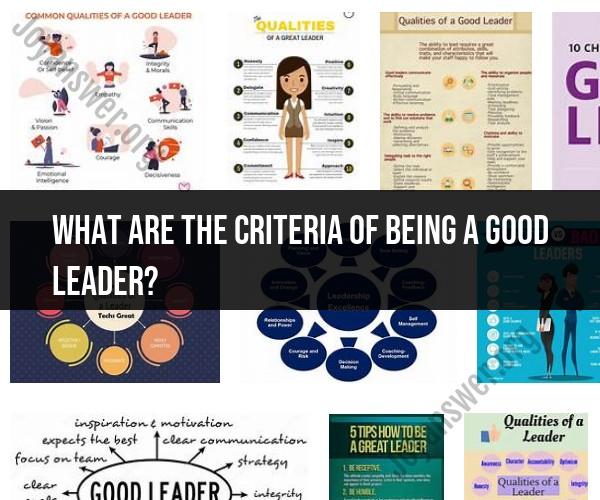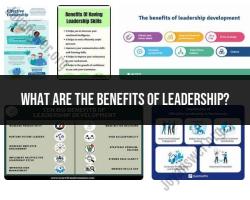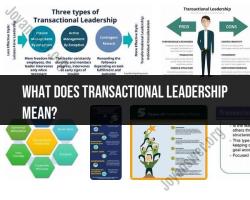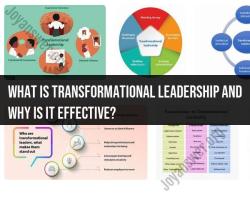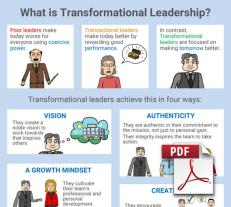What are the criteria of being a good leader?
Being a good leader involves meeting specific criteria and embodying certain qualities and behaviors that contribute to effective leadership. While leadership styles can vary, the following criteria are generally considered essential for being a good leader:
Vision: Good leaders have a clear vision of the future or a goal they want to achieve. They inspire and motivate others by communicating this vision and demonstrating a sense of purpose and direction.
Integrity: Integrity is the foundation of trust. Good leaders are honest, ethical, and consistent in their actions and decisions. They lead by example and hold themselves accountable.
Communication Skills: Effective leaders are skilled communicators. They listen actively, express themselves clearly, and convey their ideas and expectations to team members and stakeholders.
Empathy: Empathetic leaders understand the feelings and perspectives of others. They show genuine concern for the well-being of their team members and are supportive during both personal and professional challenges.
Adaptability: The ability to adapt to change is crucial in today's dynamic world. Good leaders are flexible and open to new ideas, adjusting their strategies and approaches as circumstances evolve.
Decision-Making: Leaders must make decisions, often in complex or uncertain situations. Good leaders make well-informed decisions, consider the potential impact, and are willing to take calculated risks when necessary.
Empowerment: Empowering team members means giving them the autonomy and authority to make decisions and take ownership of their work. Good leaders trust their team and delegate responsibilities accordingly.
Accountability: Leaders hold themselves accountable for their actions and decisions. They also establish a culture of accountability within their team or organization, where everyone is responsible for their contributions.
Inspiration: Good leaders inspire and motivate their team members to achieve their best. They encourage personal and professional growth and foster a sense of purpose and achievement.
Resilience: Leadership often involves facing challenges and setbacks. Resilient leaders remain composed under pressure, learn from failures, and bounce back with determination.
Conflict Resolution: Conflicts can arise in any team or organization. Effective leaders have strong conflict resolution skills, promoting healthy dialogue and finding solutions that benefit all parties involved.
Team Building: Leaders understand the importance of building cohesive and collaborative teams. They create an inclusive and supportive environment where team members work well together.
Time Management: Good leaders are skilled at managing their time effectively and prioritizing tasks. They set clear goals and help their team stay focused on achieving them.
Innovation: Leaders encourage innovation and creativity within their team. They are open to new ideas and support experimentation, which can lead to improvements and growth.
Stakeholder Engagement: Effective leaders engage with stakeholders, including employees, customers, and partners. They consider the interests of all parties and build positive relationships.
Ethical Leadership: Ethical leaders uphold high moral and ethical standards. They make decisions that align with ethical principles and promote a culture of integrity.
Diversity and Inclusion: Good leaders value diversity and inclusion, recognizing the benefits of a diverse workforce and creating an environment where all individuals feel respected and valued.
Continuous Learning: Leadership is an ongoing journey. Good leaders commit to personal and professional development, seeking opportunities to learn and grow.
Results-Oriented: Effective leaders are focused on achieving results. They set and monitor goals, track progress, and take action to achieve desired outcomes.
Sustainability: Leaders consider the long-term sustainability and impact of their decisions and actions, striving for positive outcomes that benefit not only the present but also the future.
It's important to note that no one leader will excel in all these criteria at all times, and leadership is a continuous journey of growth and improvement. The most effective leaders are often those who can adapt their leadership style to meet the needs of their team and the demands of the situation while consistently embodying these core qualities.
Principles and Standards of Exemplary Leadership
Exemplary leadership is characterized by a commitment to excellence, integrity, and service. Exemplary leaders are guided by a set of principles and standards that help them to make sound decisions, build trust, and inspire others to achieve their goals.
Some of the key principles and standards of exemplary leadership include:
- Vision: Exemplary leaders have a clear and inspiring vision for the future. They are able to articulate their vision in a way that motivates others to follow them.
- Integrity: Exemplary leaders are honest, ethical, and trustworthy. They set high standards for themselves and others and hold themselves accountable for their actions.
- Communication: Exemplary leaders are effective communicators. They are able to communicate clearly and concisely, both verbally and in writing. They are also good listeners and are able to build rapport with others.
- Decision-making: Exemplary leaders are able to make sound decisions, even under pressure. They are able to weigh the pros and cons of different options and make the best decision for the team.
- Problem-solving: Exemplary leaders are able to identify and solve problems effectively. They are able to think critically and creatively and come up with innovative solutions.
- Delegation: Exemplary leaders are able to delegate tasks effectively. They are able to identify the strengths and weaknesses of their team members and assign tasks accordingly.
- Teamwork: Exemplary leaders are able to build and lead effective teams. They are able to create a positive work environment and foster collaboration and communication among team members.
Primary Criteria Used to Measure Leadership Excellence
There are a number of criteria that can be used to measure leadership excellence. Some of the most important criteria include:
- Results: Exemplary leaders are able to achieve results. They are able to set goals, develop strategies, and motivate their team to achieve those goals.
- Engagement: Exemplary leaders are able to engage their team members. They are able to create a positive work environment where team members feel valued and respected.
- Development: Exemplary leaders are able to develop their team members. They are able to identify the strengths and weaknesses of their team members and provide them with opportunities for growth and development.
- Succession: Exemplary leaders are able to develop and prepare their team members for success. They are able to create a pipeline of talent that will ensure that the organization continues to succeed in the future.
How Great Leaders Inspire, Motivate, and Achieve Results
Great leaders inspire, motivate, and achieve results in a number of ways. Some of the key things that great leaders do include:
- Set clear and inspiring goals: Great leaders set clear and inspiring goals for themselves and their team. They are able to communicate their vision in a way that motivates others to follow them.
- Create a positive work environment: Great leaders create a positive work environment where team members feel valued and respected. They foster collaboration and communication among team members and provide them with the resources they need to succeed.
- Provide regular feedback: Great leaders provide regular feedback to their team members. They are able to identify and recognize their team members' strengths and areas for improvement. They also provide constructive feedback that helps their team members to grow and develop.
- Empower their team members: Great leaders empower their team members to make decisions and take ownership of their work. They trust their team members to do their best and provide them with the support they need to be successful.
- Celebrate successes: Great leaders celebrate the successes of their team members. They recognize and reward their team members' accomplishments, which helps to boost morale and motivation.
By following these principles and practices, great leaders are able to inspire, motivate, and achieve results. They are able to build high-performing teams that achieve great things.
